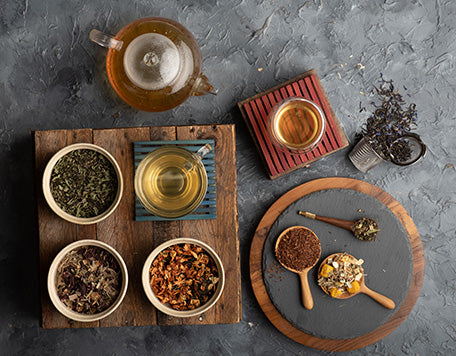Origin of Tea
The advent of tea as a beverage and refreshment predates the arrival of the British East India Company who are historically deemed responsible for the commercial cultivation and export of tea to all parts of the globe. Although the British monopolized the trade surrounding tea in the entire world at the start of the early 17th century, by exploiting the colonies they held in this part of the world, tea had been discovered and consumed by the Chinese as early as the 3rd century B.C. A Chinese text dating back to the Han dynasty was found wherein the mention of tea was recorded for the first time in history. Origin of tea is historically recorded to be in Yunan province in China. And it was only from Yunan that tea eventually spread to Sichuan and other parts of the country and eventually other parts of the world.
The Evolution of Tea in India
Tea is a globally loved beverage and despite its inability to grow on European shores, that hasn’t discouraged the West from exhibiting a pronounced efficacy for the light coloured beverage. The taste for tea was introduced, inculcated and developed to the world by the travelling colonial British who first took interest in commercial cultivation and trade of tea, charmed by the beverage initially in their voyages to the Far East in China.
The British had colonies all over the world at one point in time and it is a direct consequence of their relentless explorations into virgin territories that resulted in the discovery of the brilliant magical beverage better known to the world as tea. In India, which used to be a British colony at one point in time, tea gardens were promulgated in the hill slopes and relatively warmer foothill plains of Darjeeling, Assam & Dooars respectively, to thwart the Chinese monopoly on tea. Then, the Chinese had declined to part with tea in trade with the British and had made their control over tea even stricter by prohibiting the growth and cultivation of tea plants beyond Chinese territories. Not to be outdone the travelling British explorers managed to acquire some seeds of the plant and decided to begin their foray with tea in the colonies in India and Ceylon. Even today most tea gardens that are still prevalent and functional in India are of British colonial inheritance and they have retained every bit of their legacy by not changing the architecture or the process of tea manufacture and harvest under manual supervision.
Today the best of the black tea from Assam tea estates and the choicest Darjeeling second flush tea find widespread markets in Europe and abroad and are all exported before they can make it to Indian markets for public purchase or consumption.





